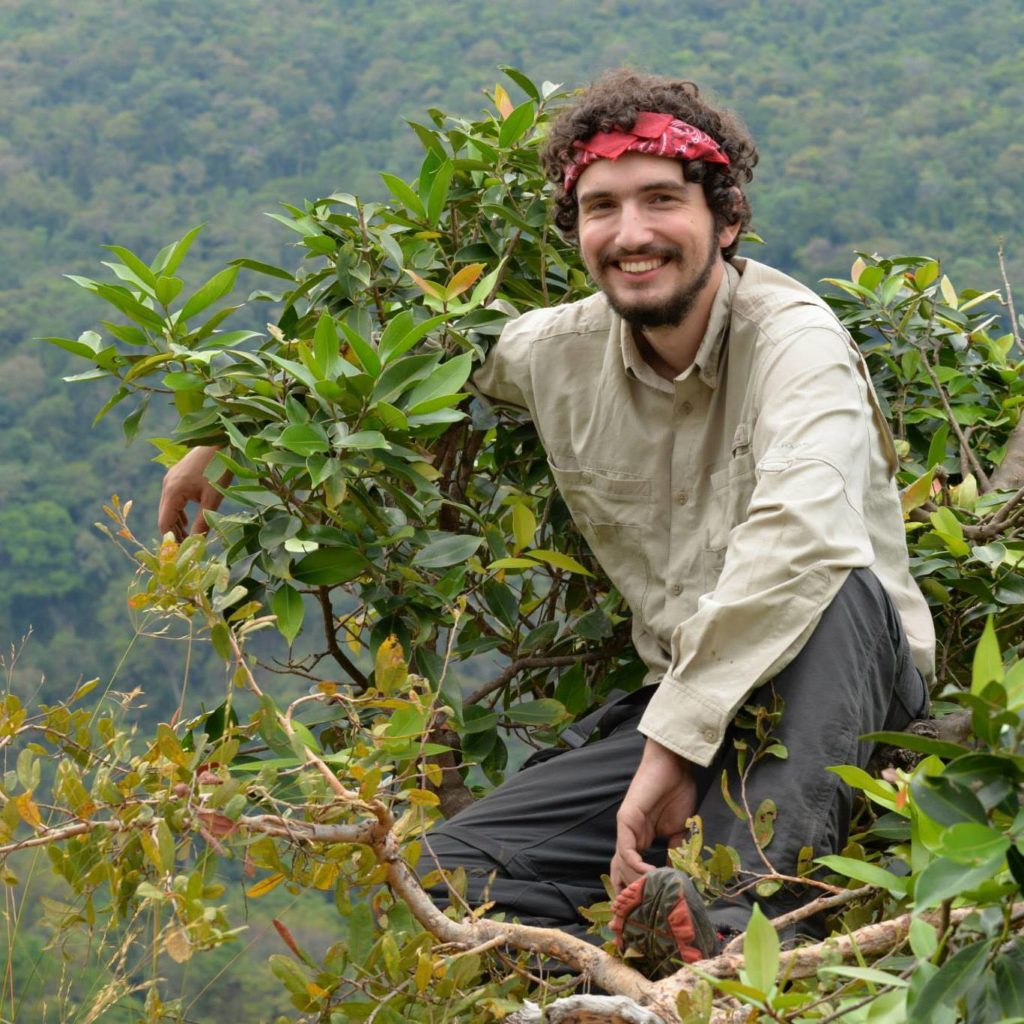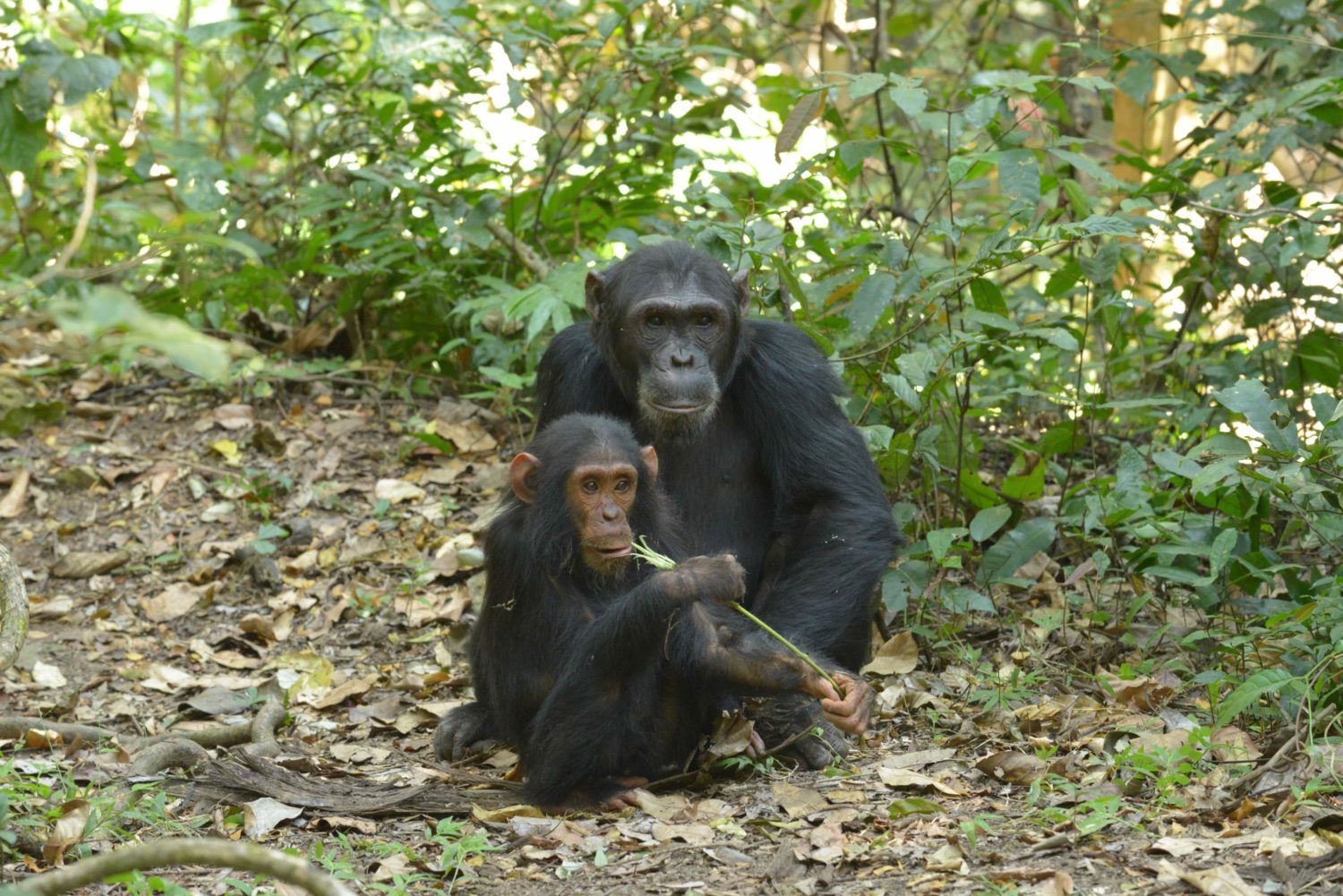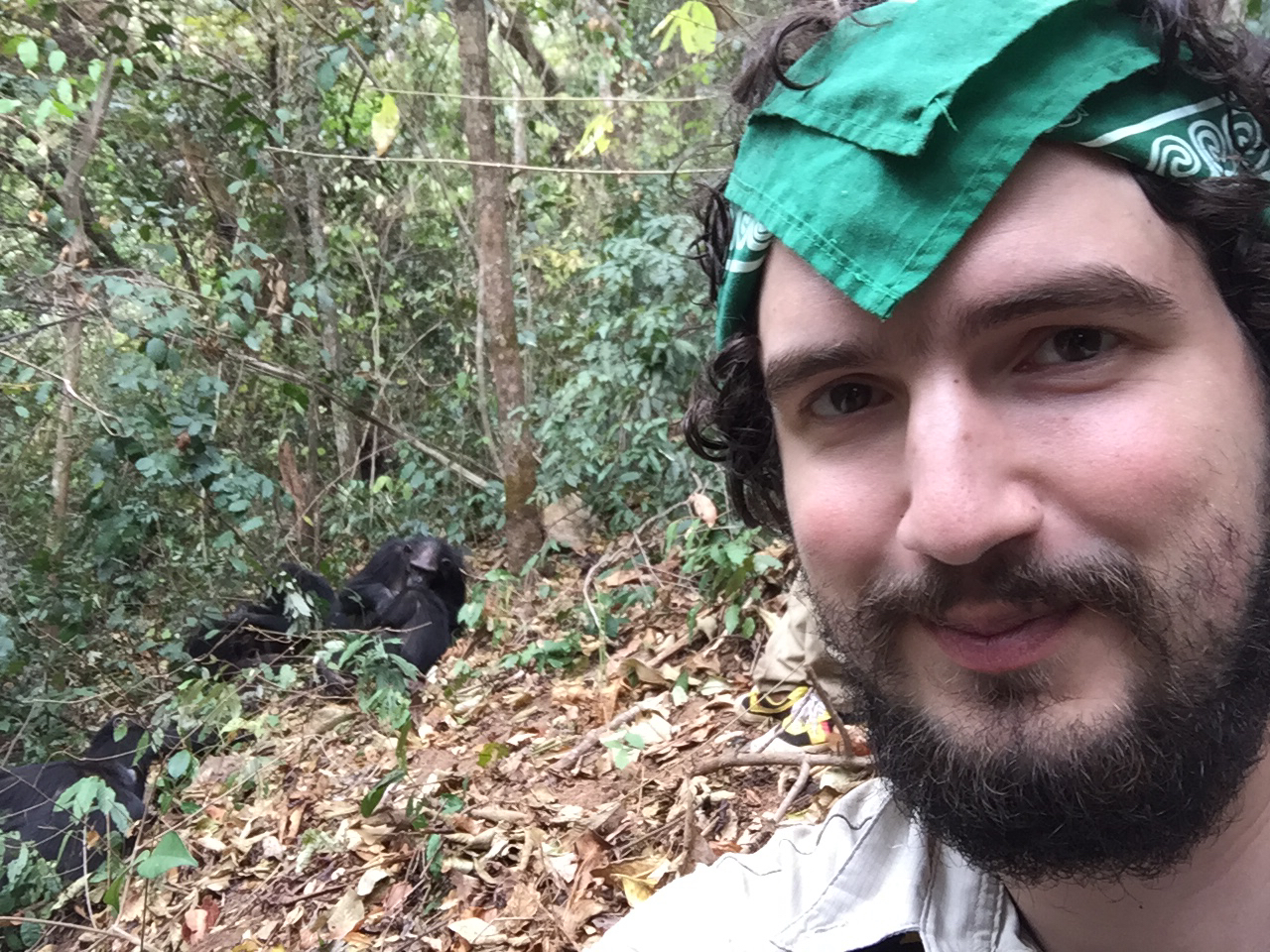Grantee Spotlight
Joel Bray is a PhD candidate at Arizona State University. They were awarded a Leakey Foundation Research Grant during our spring 2017 cycle for their project entitled “Social relationships in male chimpanzees: Form, function, and development.”

Variation is the raw material of natural selection, yet we struggle to explain why individuals vary in complex traits such as social behavior. Why are some adult male chimpanzees highly gregarious and others less so? Why do some male pairs form strong and durable social bonds while others do not?
In my dissertation, I am investigating one source of variation: the role of development and early social experiences in male chimpanzee social behavior. During infancy and juvenility, chimpanzee mothers mediate their offspring’s social experiences by choosing which community members to travel with and for how long. I am interested in how this social exposure affects an individual’s social relationships, rank, and fitness later in life.
I focus on male chimpanzees for two reasons. Unlike females, all male chimpanzees remain in the community in which they were born; thus, early life social experiences may directly influence whom individuals interact with later in life. Additionally, male chimpanzees are more gregarious than females; social relationships are therefore likely to have a greater impact on male fitness.

Where am I? I’m currently living in Gombe National Park, Tanzania, where Jane Goodall conducted her pioneering and groundbreaking research. My fieldwork here will address questions such as when and how partner preferences emerge during development. Meanwhile, I am analyzing 56 years of long-term behavioral records at Gombe to examine social bonds over the course of individual lifetimes. In other words, I will compare observations from a male’s childhood to his behavior as an adult.
I anticipate that my dissertation will help to explain individual variation in adult male chimpanzee social behavior. Furthermore, although the natural history of adult chimpanzees is well understood, basic facts of chimpanzee development remain unknown. Thus, I hope that my fieldwork will also stimulate research on chimpanzee social development by helping people ask more detailed questions and generate more refined hypotheses.
Where does this research fit within the larger story of human origins? Chimpanzees are one of our two closest living relatives and face social pressures similar to those of early hominins. Chimpanzees therefore provide clues about our last common ancestor and what changes occurred in the hominin lineage.



